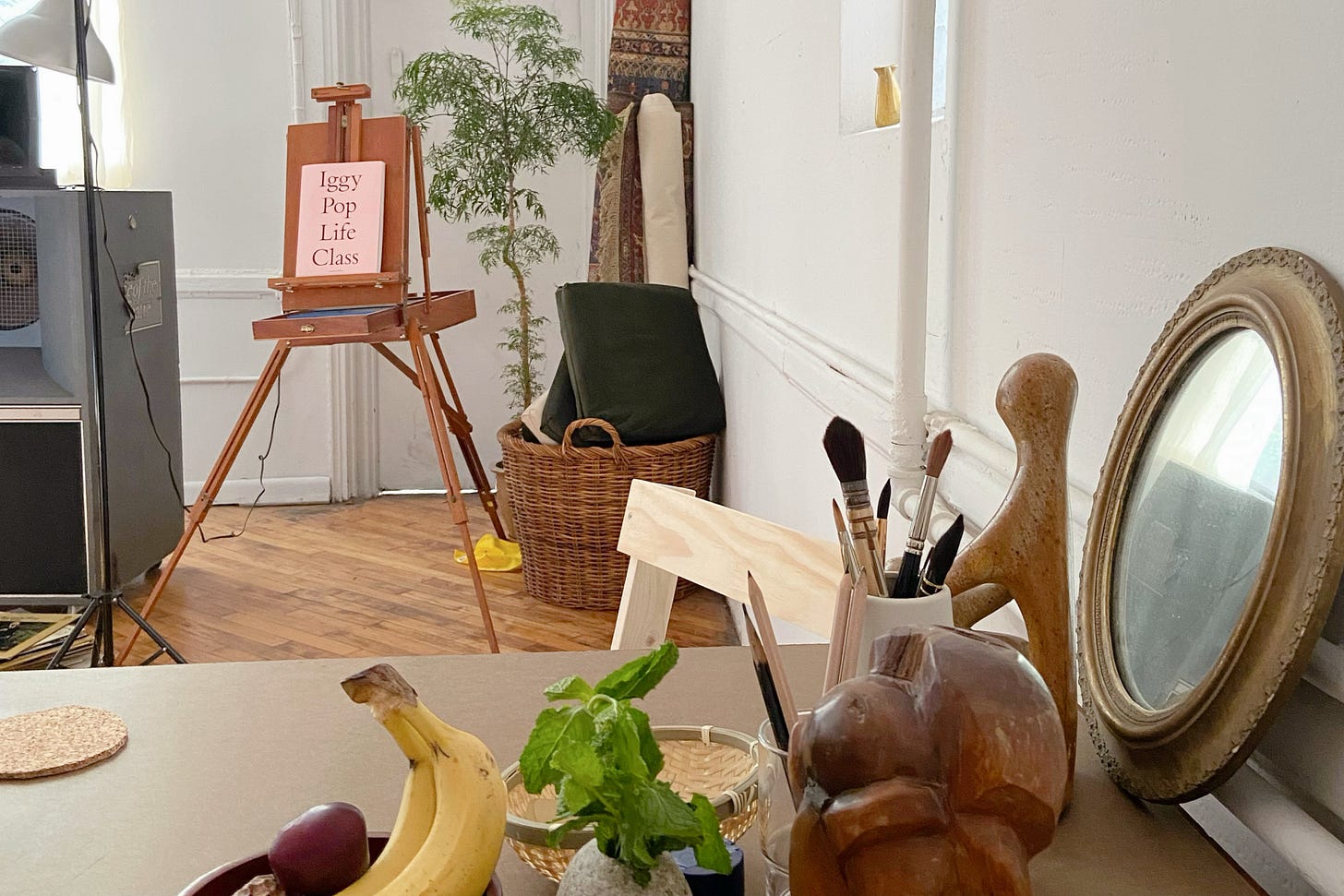You don't need another class
Stepping out of the comfort zone of someone else's guidance
This year I am vowing not to take another art class.
I cancelled a ten week graphic novel workshop I signed up for last month, even though it seems unlikely that I will get a refund. Few things pain me more than losing money, but what is a few hundred dollars when compared to lost time?
Usually I sign up for a course or workshop whenever I feel compelled to make more art and improve my craft. An email lands in my inbox from one of my favorite artists who’s teaching a workshop—oooh, wouldn’t it be fun to find out her techniques? I see an Instagram post advertising a book accelerator—why yes, I’ve always dreamed of writing a book. With every class I learn and create something, and I walk away feeling good about that progress and productivity.
Now I am questioning if I have been pursuing feel-good productivity over devotion to my own creative practice.
Two of my good friends who are writers spent a lot of time and energy last year applying for and attending workshops and conferences. In the literary world these classes, which require extensive applications and writing samples, can serve as credentials especially for those without MFAs. One could spend all of their time attending workshop after workshop projecting the aura of an accomplished writer, but are they actually writing? Are they devoted to their practice?
When I caught up with one of these friends recently, she shared that she won’t be applying for or submitting anything this year so that she can focus on drafting a novel. I admire her dedication to this goal and her realization that the most threatening distractions sit adjacent to what we most desire. The distraction and the goal can be so similar, nearly identical to the untrained eye, but upon close inspection they don’t hold the same weight.
More on classes & decision making:
I am not trying to say you should never take a class again. Classes are wonderful! They have brought me to where I am now, and I owe so much of my development to the many teachers and peers I have met in classrooms. But we can inquire ourselves more deeply before we impulsively sign up for classes, swayed by killer copywriting and the pretense of access to our favorite creators.
Below are my general guidelines for how I am vetting potential classes going forward.
Reasons to take a class:
Curiosity about a new subject or skill when you’re not sure what to focus on or when you’d like to try something new
Skilling up on something specific that you have tried and struggled with on your own
Connection when you haven’t yet established community
Access to a physical space or materials (e.g. print shops, dance studios, live models)
Reasons to think twice before taking a class + reframings:
The class is the only setting in which you make your work
The built-in accountability that classes provide is really hard to surrender, but we must learn to do this to know how to commit to our practice for a lifetime! Can you stay accountable through other means, such as weekly check-ins with a friend or a feedback group with fellow artists?
The class teaches something you already know, but you’re convinced you haven’t learned enough
We can get so preoccupied with learning that we are afraid to take the next step of creating, especially as beginners. If you believed you already knew enough, what would you want to make? Have you tried making it? Classes are much more useful when we’ve butted heads with problems and then seek the answers.
The class teaches something that’s kinda sorta what you want to make, and you figure it’s similar enough to be useful
It feels safe to work towards an externally defined goal, even if it’s not exactly your own. I’ve fallen into this trap before and was about to again with the graphic novel workshop. What I find when I take these not-quite-it classes is that I get confused and demotivated when I work towards something that isn’t quite right for me. There might not be a perfectly fitting class for the thing you want to make—that doesn’t mean it’s not worth doing! And if you get stuck trying, you can reach out to folks making similar things for support or seek out mentorship/coaching.
Two questions to ask yourself before signing up for a class:
Picture yourself taking the class. Does it feel expansive or contractive?
If you say yes to this class, what are you saying no to?
What are your thoughts on this 🌶️ take? Though classes can change your life (it certainly has mine), it is imperative that we examine the many classes being marketed towards us and ask ourselves if they are really necessary, or if our desire to take these classes is borne out of fear or lack. The more you take classes, the more likely it is that you don’t need another one.







Just came across this powerful paragraph from Mary Oliver's "A Poetry Handbook"
It is appropriate and useful to begin writing poems in a group, class, or workshop. Then, as one becomes more skilled, there is a natural and necessary movement away from the group. The writer now wants less discussion, fewer commentators. The writer now has a much clearer idea of what he or she wants to do—there is not so much need for ideas as there is for application and for self-communing. There will always remain intervals of pleasure and illumination among friends and other poets. But, finally, one realizes that one *may* be ready for the real work. On that day the writer understands that solitude is the necessity, and leaves friends, and workshops, and handbooks, and heads for it, diligently and resolutely.
I felt myself furiously nodding so much throughout all of this! Especially agree about building your own sustainable form of accountability (instead of relying on classes) and using personal experience to then try and answer questions.
Going to be sharing "it's more useful when we’ve butted heads with problems and then seek the answers" in my future newsletter too!